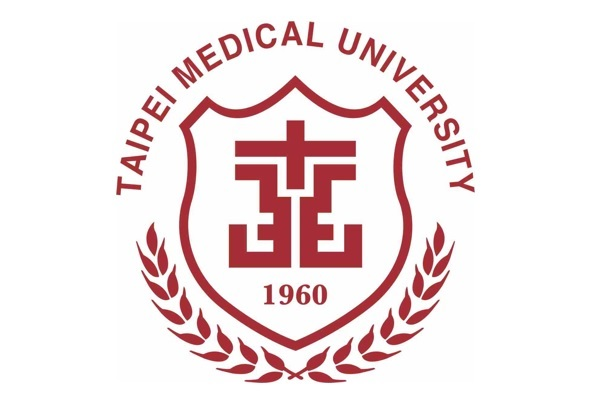Shih Lab for Non-coding RNA Research
Research Field
Dr. Shih has received his doctoral and postdoctoral training in molecular RNA biology. Currently, he is an associate professor at the Graduate Institute of Cancer Biology and Drug Discovery at Taipei Medical University (TMU), focusing on studying oncogenic long non-coding RNAs (lncRNAs) and their translational applications. He is also a member of the TMU Research Center of Cancer Translational Medicine.
Academic Experience
- 2018-2022 Assistant Professor, Graduate Institute of Cancer Biology and Drug Discovery, College of Medical Science and Technology, Taipei Medical University, Taipei, Taiwan
- 2013-2018 Adjunct Assistant Professor, Ph.D. Program for Translational Medicine, College of Medical Science and Technology, Taipei Medical University, Taipei, Taiwan
- 2013-2014 Research Scholar (supported by National Science Council of Taiwan), Ph.D. Program for Translational Medicine, Taipei Medical University, Taipei, Taiwan
- 2012-2013 Visiting Scholar, UC Davis Comprehensive Cancer Center, Sacramento, USA
- 2011-2012 Post-Doctoral Fellow, Department of Biological Science and Technology, National Chiao Tung University, Taiwan
- 2007-2011 Post-Doctoral Fellow, Institute of Biochemistry and Molecular Biology, National Yang-Ming University, Taiwan
Long non-coding RNAs (lncRNAs) represent a new and under-studied class of transcripts with emerging functions in gene regulation and critical links to human health. Towards a molecular understanding of lncRNA function in tumor progression, our lab is currently integrating a set of biochemical, bioinformatics, and molecular biology strategies to characterize lncRNA species, elucidate their action modes, and explore their clinical applicability.
I. LncRNAs in response to tumor hypoxia
Hypoxia is a common feature of the tumor microenvironment, profoundly affects gene expression, and is tightly associated with cancer progression. It is now known that lncRNAs play critical roles in the signaling networks mediating the response of cancer cells to hypoxia, such as metabolic reprogramming, invasion, and metastasis. We are using a variety of approaches to identify and characterize lncRNAs involved in this process.
II. RNA-based diagnostic and therapeutic strategies for cancer
In clinical practice, it has been shown that circulating noncoding RNAs could serve as potential disease biomarkers with high specificity, sensitivity, and noninvasive characteristics, whereas a series of lncRNAs hold great potential to be developed as specific targets for therapy. In collaboration with clinical physicians, our group is implementing in-depth studies to validate the clinical relevance of the oncogenic circulating lncRNAs we’ve identified, hoping that these efforts could help identify novel biomarkers and therapeutic strategies beneficial to cancer patients.
- RNA biology, metabolism & clinical translation
- RNA-mediated stress response signaling and network
- Adaptation of cancer cells to microenvironmental stresses
- RNA-based biomarker & therapeutics
- 2022 Outstanding Teaching Award, College of Medical Science and Technology, Taipei Medical University, Taiwan
- 2018 Postdoctoral Academic Publication Award, Ministry of Science and Technology, Taiwan
- 2012 Postdoctoral Research Abroad Program, National Science Council, Taiwan
- 2008 14th Excellent Thesis Award, Liver Disease Prevention & Treatment Research Foundation, Taiwan
- 2007 Oral Presentation Award (2nd Place), the Symposium on Host-Microbes Interactions, the Taiwan Society for Biochemistry and Molecular Biology, Taiwan
- 1999 Professor Chung-Hsiang Kuo Memorial Scholarship, Department of Biology, National Taiwan Normal University, Taiwan
- 2001-2007 Ph.D., Biochemistry and Molecular Biology, Institute of Biochemistry and Molecular Biology, National Yang-Ming University, Taipei, Taiwan
- 1999-2001 M.S., Pharmaceutical Sciences, Institute of Biopharmaceutical Sciences, National YangMing University, Taipei, Taiwan
- 1995-1999 B.S., Biology, Department of Biology, National Taiwan Normal University, Taipei, Taiwan
2 Vacancies
Job Description
Job Description
Interns will engage in:
- Conducting literature reviews and experimental research related to ongoing projects.
- Receiving training in laboratory safety and essential experimental techniques.
- Participating in data analysis and laboratory presentation activities.
Benefits
- Hands-on experience with cutting-edge RNA research tools and techniques.
- Access to state-of-the-art transcriptomic equipment and analysis software.
- Collaboration with leading experts in the field.
- Exceptional participants may become eligible for funding support to pursue a Master's or Ph.D. program in Cancer Biology at TMU.
Preferred Intern Education Level
Preferred Qualifications
Students currently pursuing a bachelor’s, master’s, or Ph.D. degree in molecular biology, life and biomedical sciences, or related fields.
Skill sets or Qualities
Desired Skills and Attributes
- Strong understanding of RNA biology.
- Experience with cell culture and molecular biology research.
- Effective written and verbal communication skills in English.
- A collaborative and team-oriented mindset.
